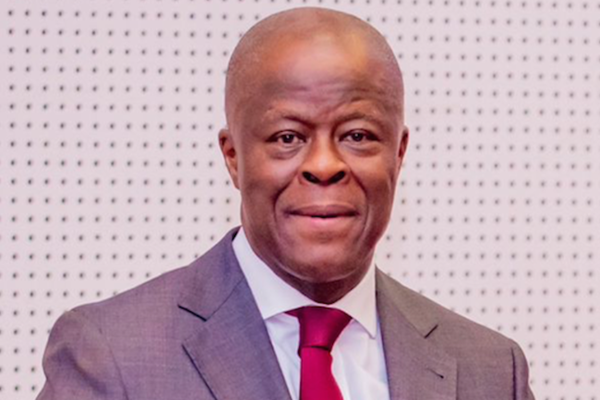• NEC committee tours facilities
• ‘We can’t use obsolete tools to train our officers in today’s modern policing’
President Bola Ahmed Tinubu has declared a state of emergency on security training institutions as part of efforts to tackle criminality and insecurity across the country.
Enugu State Governor Peter Mbah said this yesterday in Ikeja, Lagos, during an on-the-spot assessment of the Police College in the city.
Mbah, who is the Chairman of the National Economic Council (NEC) Committee on the overhaul of security training institutions across the country, was accompanied by his Ogun State counterpart, Prince Dapo Abiodun, the Committee’s Secretary and former Inspector-General of Police (IGP), Alkali Usman Baba, as well as Assistant Inspector-General of Police (AIG) in charge of the Special Protection Unit (SPU), Olatunji Disu.
Mbah said the team was given a 30-day deadline to submit a comprehensive report to the NEC for action.
The governor explained that the president’s decision to declare a state of emergency in the security sub-sector stemmed from the recognition that decades of neglect had left many training facilities across the country in deplorable condition, making it difficult to prepare personnel for modern policing properly.
He said: “What we have seen here today is consistent with what the President recognised when he came to the Council Chamber on October 23 and personally approved the inauguration of this ad hoc committee to overhaul all training institutions of the police and the Nigeria Security and Civil Defence Corps (NSCDC).
“The President believes that there is a need for bold and urgent steps to restore the pride, professionalism, and confidence of our men and women in the security space. That is what we have come here to validate.”
Mbah announced that the committee, which split into two teams to cover the North and the South, would conduct a deep assessment of the facilities in collaboration with consultants to determine what should be rebuilt, re-equipped, or upgraded.
“The President saw this as an emergency. There will be an intervention fund for the rebuilding, renovation, and re-equipping of these training institutions,” the governor said.
According to him, the committee’s work aligns with President Tinubu’s recent approval for the recruitment of 30,000 new police personnel, which requires adequate facilities for training.
“We cannot use systems of the 20th century to train a 21st-century police force. Officers need to be equipped with evolving skills, such as artificial intelligence, robotics, and digital competencies. We must ensure that those protecting our communities are trained in humane and conducive environments,” the governor told reporters.
The chairman stressed that the intervention was not a reactionary measure to United States President Donald Trump’s outburst but a proactive effort by a forward-thinking president who is determined to reverse years of decay in the country’s security architecture.
“We are not just talking about bricks and mortar. This includes upgrading equipment and soft infrastructure to meet modern realities,” he added.
Ogun State Govenor Dapo Abiodun said the project was borne out of President Tinubu’s passion to improve the welfare and capacity of security operatives.
“The President said you cannot treat people like animals and expect them to be motivated. That’s how deeply he feels about this.”
“We are committed to delivering a robust, fact-based report that will ensure our security institutions are ready to support the trillion-dollar economy the President envisions within five years,” Abiodun said.
The governor said the seven-member committee has the governors of Enugu, Ogun, Akwa Ibom, Taraba, Nasarawa, Kaduna, and Zamfara states, alongside the former IGP and a team of consulting engineers.
Abiodun stressed that socioeconomic development cannot thrive in an atmosphere of insecurity or inadequate policing, adding that the committee’s report to NEC would provide a roadmap for rebuilding Nigeria’s security training institutions in line with global standards.
Briefing the committee, the Commandant of the Police College, Ikeja, AIG Omolara Oloruntola, said the school’s challenges include the near collapse of some of the colonial structures and dilapidated dormitories, among others.
She said: “I would like to mention some of our challenges. Some of our dormitories that were built since 1948 are almost dilapidated. For now, it can only conveniently take about 500 trainees. I couldn’t use the dining hall for my last recruit who passed out a few months ago.
“There is a ceiling there that is almost collapsed. When you go there, sir, you will see it. An engineer came and said that there was a construction error.
“Also, we don’t have a conference hall. The roofs of our accommodation are all leaking. We have water shortage, too. We don’t have light to power our boreholes.
“The dining hall, like I said, I have to force them, crowd them in the hall to give them food. All the windows are removed. There are storms here and there that really need renovation. Our sporting equipment for the training of the recruits is not here.
“In some of our classrooms, there are no chairs, no fans. The students do not have a conducive learning environment, even my workers, too. All the buildings here need renovation, sir.
“Some of my staff members have to come from outside. They are not accommodated here, which makes coming to the classroom difficult. I have to be pursuing them every time.
“There are a lot of things that we require the government to do for us, sir. Incentives are not even there for my staff. Of course, in the training institution, when there are no incentives, no allowances, it becomes a problem for us.”
Oloruntola recalled the period when the school did not have a power supply at the parade ground.
The commandant added that she embarked on remedial work to make the best of the situation, but her efforts were not enough due to the enormity of the challenges.




